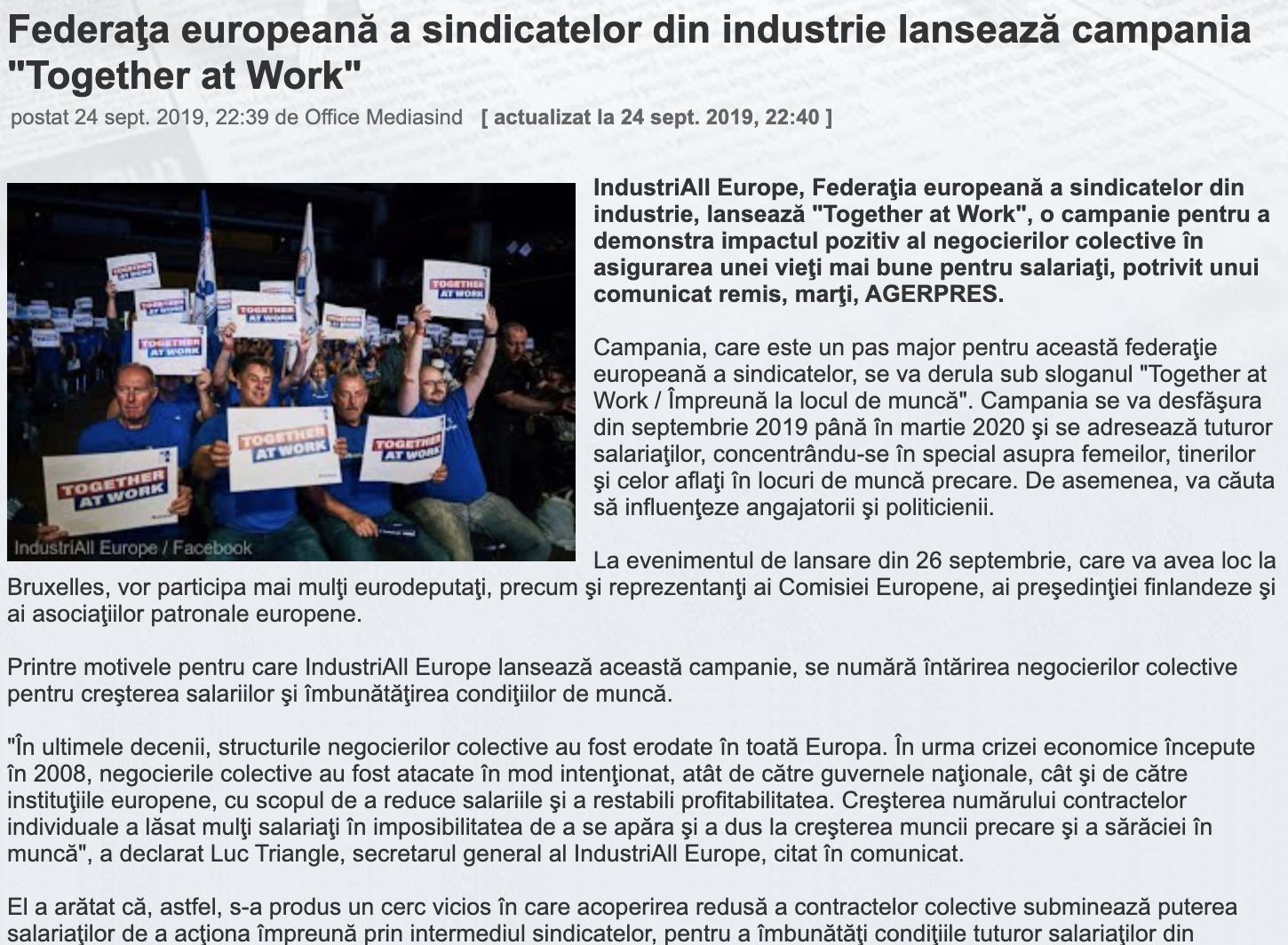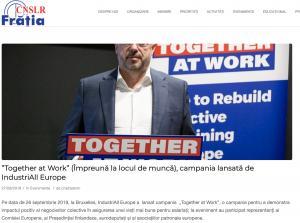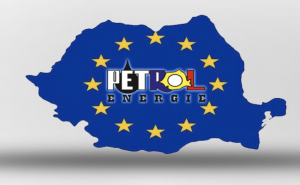Romania: If It Ain’t Broke, Let the Troika Fix It
A decade after the introduction of austerity measures in Romania in 2009, the country’s population, particularly its workers, are still enduring the consequences of a crisis that they did not cause. The case of Romania clearly illustrates how multinational companies, supported by favourable policies from the European Union, push a race to the bottom in Eastern countries, pitting one group of workers against another.
In 2009, the Troika, composed of the European Commission, the European Central Bank and the International Monetary Fund, loaned Romania €20 billion on the condition that they implemented austerity measures. In order to satisfy the Troika’s demands, the centre-right government lead by Prime Minister Emil Boc passed a law which:
- obliged managers to reduce personnel costs by 15%;
- cut the wages of all public employees by 25%;
- cut the pensions of retired people by 25%;
- cut additional bonuses, end of year bonuses, meal vouchers and rent subsidies; due to these cuts, Romanian workers were left 50% poorer than before;
- froze in the national minimum wage;
- increased VAT from 19% to 24%.
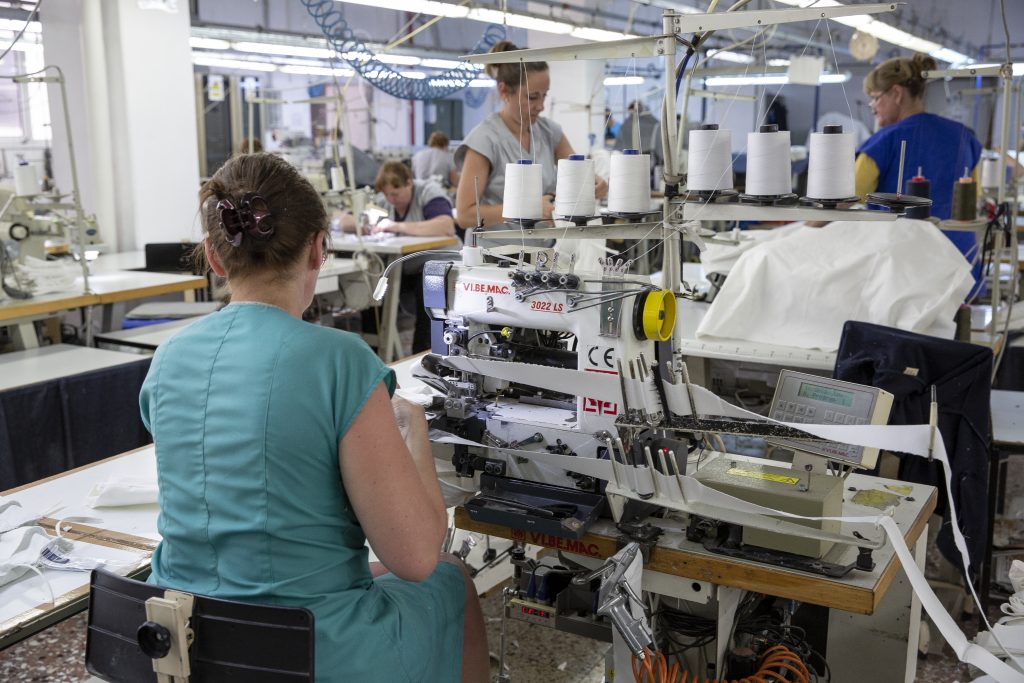
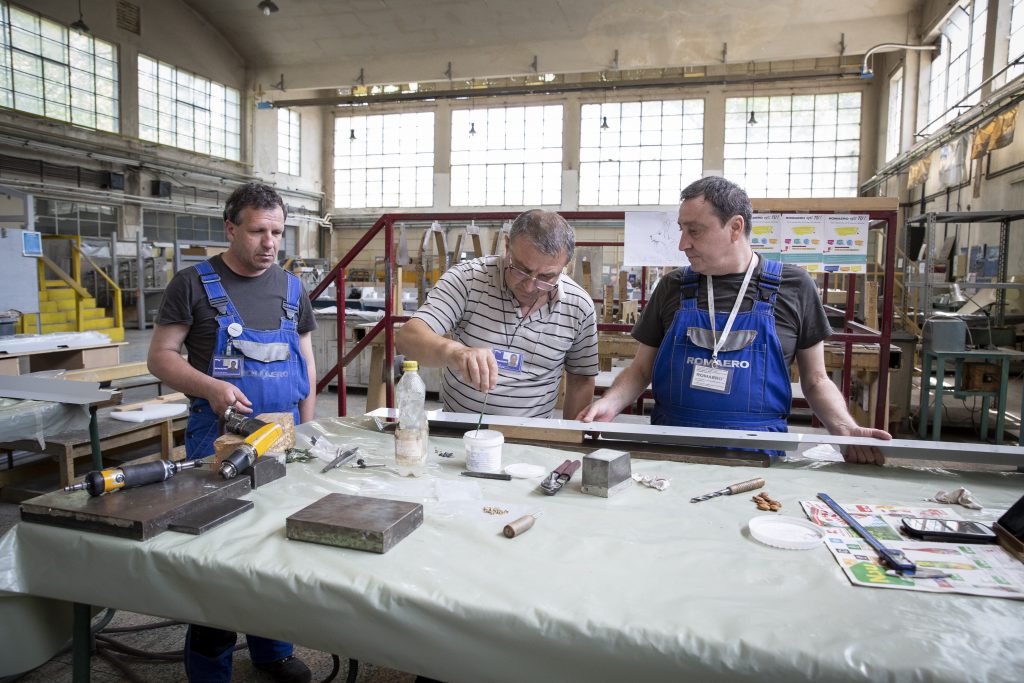
The consequences of austerity on Romanian society were disastrous. In 2009, over 40% of the population was living at risk of poverty. Being in work no longer guaranteed a basic standard of living, since in-work poverty affected 34% of employees. Wage cuts, combined with the opportunity to work in other EU states, have led to massive emigration since 2008, keeping the unemployment rate fairly low, while leading to labour shortages in most sectors. Around three million people have emigrated over the past 25 years, more than half since the crisis. The austerity law remained in place until 2017, while the 25% cuts were gradually reversed by 2015. However, these changes did not lead to marked improvements: in 2017, 34% of the population were still living in poverty, while 26% were affected by in-work poverty.
The nightmare for Romanian workers does not end here. Foreign investors, supported by the Troika, lobbied the centre-right government for a more ‘flexible’ market. Although labour-market regulation was not considered a cause of the crisis in Romania, the demand for labour-market deregulation was one of the conditions for getting financial assistance from the Troika.
What followed was the wholesale decentralisation of the labour market through the Social Dialogue Law 62/2011 which completely dismantled the collective bargaining system in a country which used to have one of the best functioning in the region. This was a win for the foreign investors who had bought many state-owned companies in the 2000s, after the privatisation process was simplified and it became clear that Romania would join the EU. This was a perfect fit for their “mixed-cost” strategy in which high wages and high-skilled workers are attracted to and kept in the West, while low-wages are guaranteed in the East.
Before the 2011 Social Dialogue Law abolished national collective bargaining and made sectoral collective bargaining impossible, wage scales were set through collective agreements at national or sectoral levels. So when these were removed, the number of workers on the minimum wage almost quadrupled between 2011 to 2016. Suddenly the wage differences between people with higher qualifications and the ones without disappeared, pushing many to migrate.

Box 1
Problems with the New Social Dialogue Law:
- The law limits the right to organise by making it impossible to unionise work- ers in companies with fewer than 15 employees (90% of companies in 2012 in Romania). Before 2011, 15 employees in the same profession could form a union.
- It prohibits national collective agreements. Their absence led to a reduction in collective-bargaining coverage in Romania from 98 % in 2010 to 35% in 2011. Although this provision of the Social Dialogue Law violates International Labour Organisation Convention 98, it was strongly supported by the Commission and the IMF.
- It made it very difficult to negotiate sectoral agreements. Social partners had to re-register with the local courts to prove their representativeness in new, redefined sectors with more stringent representative requirements. While most union federations regained their representative status, only 7 employers’ federation had re-applied by the end of 2012. Some saw this as an opportunity to exit their associations. This led to a major decline in collective bargaining coverage: the number of sectoral agreements fell from 20 in 2008 to 7 in 2014. No new sectoral agreement was concluded between 2011-2015.
- It abolished the automatic extension of sectoral agreements.
- It made it far more difficult to negotiate company agreements by raising the representativeness threshold for unions from 33% to 50%.
Before the Social Dialogue Law, Romania used to have a system that protected workers: where collective agreements could be concluded at national, industry (or other sub- divisions) and company levels and were automatically extended to cover all employees. Meanwhile, the favourability principle ensured that agreements could only improve the provisions set at a higher level and the Labour Code obliged employers to negotiate with unions in a number of areas, such as on workload, and changes in job classifications and working time. There was a provision to ensure wages, working hours and working conditions could be covered by company-level agreements whilst national and sectoral agreements covered a wide range of issues from wage scales to procedural rules.
Following the new Social Dialogue Law, Romania switched to a voluntary system which was much more favourable to the bosses (see boxes 1 and 2).
As a protest against the Social Dialogue Law the unions withdrew from most tripartite bodies. Even the employers’ organisations joined the unions in their protest (four of the largest employers’ organisations covering almost two-thirds of the active labour force) by withdrawing from the national tripartite institutions in 2011. The employers were against the law because its provisions ended their role in national negotiations. From their point of view, national agreements maintained social peace and set minimum labour standards to ensure fair competition between their members. The unions organised protests in 2010, but nothing changed.
No new industry-wide agreement was signed in the private sector between 2011 and 2015. Collective bargaining for groups of companies however survived in highly unionised parts of the private sector, such as metalworking, where it takes place only at sub-sectoral and company levels and covers around 10% of the companies that were under sectoral agreements before 2011. In non-unionised companies it is often difficult to enforce even the minimum legal standards.
However, there is still a very dim light at the end of the tunnel, as a law to reform the disastrous 2011 Social Dialogue Law is currently being discussed in the Romanian Parliament. Hope dies last. It is yet to be seen if the current social-democratic government will make the necessary changes to improve the situation for workers and for the whole of society.
Box 2
How the New Social Dialogue Law Limits the Right to Strike
- it obliges the conflicting parties to seek conciliation before a strike can start
- it introduces a peace clause removing the option of calling a strike whilst an agreement is in place, even if the provisions are not implemented
- workers involved in industrial action lose all their employment rights, except their health insurance, while previously they lost only their wages
- union reps also used to be protected against dismissal for two years after completing their mandate, while under new law they are no longer protected after their mandate ends
- this led to a major decline in industrial action in Romania, which had the highest strike activity in the region before 2008.


